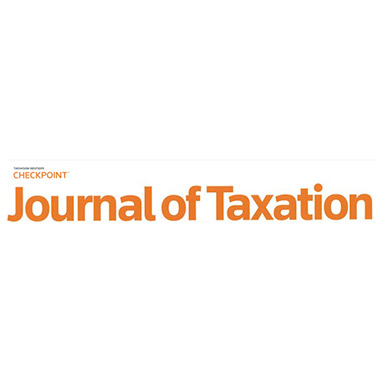If you are a U.S. citizen or legal permanent resident who is now living abroad, you will still be subject to tax responsibilities to the IRS in most cases. While it is possible to relinquish your tax responsibilities as an expatriated person, you will need to satisfy the “exit tax” requirements.
Fortunately, our expatriate tax attorneys can help you determine what you need to do to avoid serious IRS penalties. The IRS imposes an exit tax to ensure that individuals are not enjoying the benefits of citizenship without paying their fair share. However, it is not the only requirement expatriates must be concerned with. In certain cases, expatriates will also need to file a Report of Foreign Bank and Financial Accounts, and potentially others, to remain compliant.
For a free evaluation of your expatriation responsibilities, speak with our expatriation tax lawyers at McCormick Tax Law at (215) 630-0861.
Understanding the IRS’s Rules on Expatriation
The United States is consistently striving to improve international tax law compliance and enforcement. As a result, expatriate laws have been put in place to reduce offshore tax evasion, making it harder to avoid the “Exit Tax.” If an individual decides to relinquish their Green Card or renounce their Citizenship, it does not mean they are exempt from their IRS tax obligations.
For federal tax purposes, an individual is considered to have given up their citizenship on the earliest date of one of four “notice events.” These events include renouncing U.S. nationality before a diplomatic or consular office, providing a signed statement of voluntary relinquishment of United States nationality, receiving a certificate of loss of nationality from the U.S. Department of State, or having a U.S. court cancel a naturalized citizen’s certificate of naturalization. However, the first two methods are only effective if the U.S. Department of State issues a certificate of loss of nationality.
Exit Tax Rules for Expatriates
The implementation of an expatriate tax by the IRS is primarily driven by the concern that individuals may accumulate wealth as US citizens or legal permanent residents but then leave the country without paying taxes on their earnings.
If you leave the country on or after June 17, 2008, you may be subject to the IRC 877A expatriation rules. For instance, if your average annual net income tax for the five years prior to leaving exceeds a specified amount that is adjusted for inflation, you will need to file an Exit Tax. You will also be subject to an exit tax if your net worth on the day you left was $2 million or more. Lastly, if you do not certify on Form 8854 that you have fulfilled all U.S. federal tax obligations for the five years before leaving, exit tax rules will also apply.
Penalties for Failing to File Exit Tax Forms
If you have renounced or terminated your U.S. residency, you must file Form 8854, known as the Initial and Annual Expatriation Information Statement. Failure to file Form 8854 when required can result in a $10,000 penalty. The IRS is currently sending notices to expatriates who have not complied with the Form 8854 requirements, including the imposition of this $10,000 penalty where appropriate. To avoid penalties, it is crucial that you fulfill all the filing requirements, including providing accurate information, since even an honest mistake could result in severe penalties.
Report of Foreign Bank and Financial Accounts (FBAR) Requirements for Expatriates
If a person from the United States has a financial account in a foreign country, like a bank account, mutual fund, foreign pension, foreign life insurance, or brokerage account, they must report any income earned from that account to the IRS by filing a Report of Foreign Bank and Financial Accounts, commonly known as an FBAR. The definition of a U.S. person for FBAR purposes includes American citizens, residents, corporations, partnerships, limited liability companies, trusts, and estates.
When You Must File an FBAR
If a U.S. individual has a financial interest or authority in one or more foreign financial accounts and the total value of these accounts exceeds $10,000 at any point during the year, they must file an FBAR report. FBAR regulations will also apply to foreign financial accounts even if they do not generate taxable income.
It is not mandatory for a taxpayer to file an FBAR for certain foreign financial accounts, including those owned by a governmental entity or an international financial institution. Additionally, correspondent or nostro accounts do not require FBAR filing. Furthermore, if an individual has a retirement account or is listed as a beneficiary for one, they are also exempt from FBAR filing in these situations.
Penalties for Failing to File an FBAR
When it comes to FBAR violations, the government usually determines if the taxpayer acted willfully or not before assessing penalties. If FBARs are not reported due to unintentional errors, the taxpayer may face a penalty of up to $10,000. In cases where multiple accounts are not reported accurately, a $10,000 fine may be imposed for each account.
If it is found that you intentionally concealed your income, the consequences could be severe. The government has the power to levy penalties of up to $100,000 or 50% of the entire account balance, whichever is higher, in the case of a willful violation. Importantly, claiming ignorance of FBAR obligations, also known as “willful blindness,” will typically not excuse willful FBAR violations since the IRS will consider this an intent to conceal one’s finances.
Foreign Account Tax Compliance Act (FATCA) Requirements for Expatriates
According to FATCA regulations, certain foreign financial institutions have a legal obligation to report directly to the IRS any financial accounts held by U.S. taxpayers or foreign entities in which U.S. taxpayers have a substantial ownership interest. This reporting requirement typically applies to individuals, banks, brokers, and investment firms. In order to comply with FATCA regulations, expatriates who possess financial assets outside of the country must report them to the IRS through Form 8938, which is a Statement of Specified Foreign Financial Assets. However, you do not need to submit Form 8938 if you are not required to file an income tax return for the current year, regardless of whether your foreign financial assets exceeded $50,000 in the previous year.
Missing the FATCA deadline can result in penalties from the IRS, ranging from $10,000 to as much as $50,000 if an expatriate ignores IRS notices. In extreme cases where an expatriate refuses to pay their obligations and penalties, the IRS can refer the case to the Department of Justice, with a criminal investigation likely to follow that could lead to a conviction and prison time. To avoid this situation, it is essential to communicate with the IRS and negotiate a payment plan to settle your tax debt before the case is referred for prosecution.
Our Expatriation Tax Attorneys Can Help
Reach out to McCormick Tax Law today at (215) 630-0861 for a free case review with our expatriation tax attorneys.










